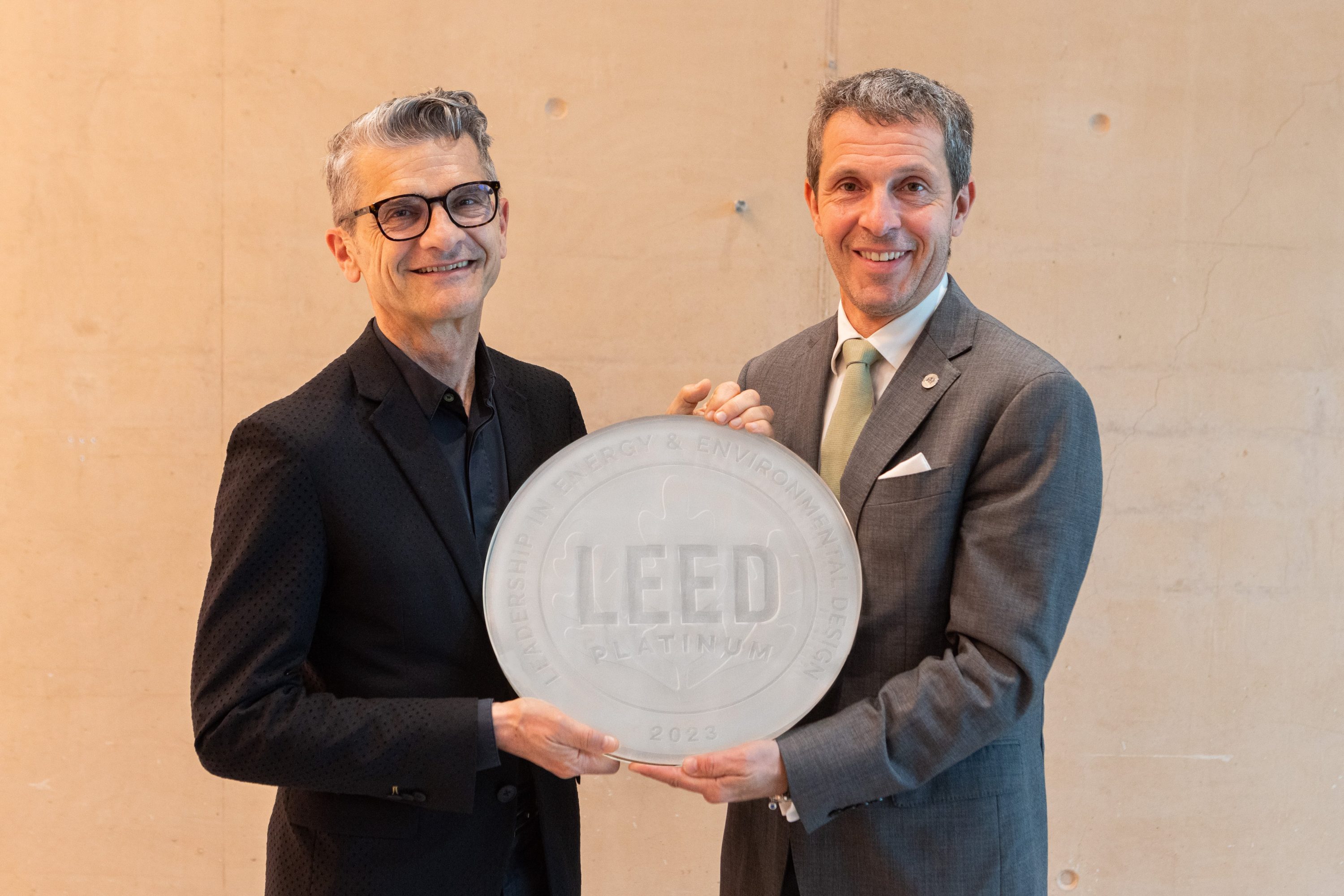Fendi factory, the new pole of excellence located in the heart of Tuscany’s countryside in Capannuccia (Bagno a Ripoli), close to Florence, highlights the Maison’s continuous commitment towards environmental sustainability and social responsibility. Covering a land surface of eight hectares, Fendi Factory occupies a 30,000-square-meter area formerly housing the Fornace Brunelleschi kiln. The initial concept has been developed by Milan-based architecture firm Piuarch and has then been advanced, developed and coordinated by Fendi ’s Architecture Department.

Italy is synonymous with tradition, history, beauty and above all excellence. We embrace the opportunity to invest in the Made in Italy and to sublimate the core values of craftsmanship, artisanal savoir-faire and the power of handcrafting. Expertise and experimentation are all elements that support our marketing and company culture and at Fendi we believe that keeping and transmitting this level of tradition is fundamental for the coming generations. We are very proud of our roots, of this new chapter in Bagno a Ripoli, offering our teams a sustainable and caring working environment, while also contributing to the reconversion of a dismissed site.”
Serge Brunschwig, Fendi Chairman and CEO
Blurring the lines between indoor and outdoor spaces, Fendi Factory features a building developed on one main level, housing all the functions (production, laboratories, offices, services), a basement for parking and a 1st floor with the canteen directly overlooking the roof garden. The factory is surrounded by seven hectares of greenery, which have been treated with utmost care: the landscape project of Fendi Factory’s park is designed with the aim of integrating the factory and landscape in a perfect mix of spontaneous woods and agricultural sceneries of Tuscan countryside. A 700-olive grove sneaks into all areas of the park, allowing the production of oil from the Factory itself of up to 900 litres per year. Inside the building, nine glazed courtyards shed light on interior spaces, strengthening the link with the surrounding landscape and bringing their presence back into production and office spaces. Each courtyard is characterised by Mediterranean scrub tree species – fig, holm oak, pomegranate, osmanthus, acacia, oak, strawberry tree, etc.
With plenty of sunlight filtering through large glass walls, functional and efficient manufacturing plants offers a healthy workplace, where artisans can express their skills and creativity at their best. Designed to guarantee unparalleled efficiency, Fendi’s new plant, including a range of manufacturing areas, offices and warehouses, feature rational spaces enabling an easy circulation of people and goods.
In keeping with the Roman luxury house’s continuous commitment towards sustainability, Fendi Factory features the prestigious LEED Platinum certification. Both the perimeter and interior walls are made of glass, enabling the sunlight to filter and offering employees serene views of the Tuscan countryside and of the impeccably designed courtyards presenting local varieties of plants and flowers.
Enabling the new Fendi site to blend in with the environment, the external walls of the different building match glass with a natural mix of soil and concrete in a signature earthy tone reflecting the colour shades of the Tuscan hillside and celebrating the ancient tradition of the site.
Interiors are characterised by terracotta core cladding designed by Fendi, positioned in pattern of alternate vertical lines – echoing the Pequin theme – interrupted by the insertion of special handmade tiles, reminiscing the graphic double F logo. Terracotta, a great example of the highest Italian craftsmanship, reminds of the material of the pre-existing kiln. A large helicoidal staircase connects the main ground floor with the canteen’s upper floor. Office and production furniture is in the neutral shades of white, emphasising the brightness of natural light seeping in together with the custom-designed lamps, both indoor and outdoor. All furnishings are Made in Italy, as well as the terracotta tiles. In the canteen, a minimalist space is created with the use of steel and sheet metal, pigmented concrete surfaces alternating with terracotta cladding, to create a dynamic dialogue with the softness of the hanging roof landscape.
Following the principles of sustainability that have driven the design of Fendi Factory, upholstered furniture and stock leather have been reused and upcycled.
To mark the importance of this milestone for the Roman luxury house, Serge Brunschwig, Chairman and
CEO, back in November 2020 planted a tree on the construction site: a Turkey oak, a symbol across different cultures of virtus, dignity and courage. In particular, the Turkey oak tree plays a key role in the Fendi Factory project, celebrating the local biodiversity of the area.
In addition, Fendi has created a public park in the same area, opposite the kindergarten, featuring playgrounds, wide benches and following the same approach of biodiversity of the Fendi Factory landscape, with native plant species and some areas dedicated to the growth of plants to have an effect as natural as possible.

